
ReligiosiTea
ReligiosiTea is where sacred storytelling meets critical inquiry—an exploration of how religion, spirituality, and health collide, converge, and co-heal.
Hosted by Adren, a doctoral student in Health Equity Sciences with a Master of Public Health and a background in anthropology, this podcast bridges the gap between lived experience and academic insight. With deep roots in qualitative research and a passion for testimony, Adren invites listeners into the spaces where belief systems meet bodies, where healing is both clinical and cosmic, and where the divine shows up in diagnosis, doubt, and deliverance.
The name ReligiosiTea is a portmanteau of religiosity—a measure of religious participation—and tea, a term from queer and AAVE dialects meaning truth, gossip, and revelation. This isn’t just a show about religion or health—it’s about the stories we whisper, the rituals we survive, and the questions we dare to ask when the stakes are spiritual and embodied.
Episodes vary in format—from interviews with people of diverse faiths and spiritual identities, to solo reflections, to commentary on the politics of faith and wellness. Whether you’re devout, deconstructing, or somewhere in between, ReligiosiTea offers a grounded, generous space for complexity, clarity, and connection.
ReligiosiTea
Long Steep: White Smoke, Red Flags, the Papacy
Use Left/Right to seek, Home/End to jump to start or end. Hold shift to jump forward or backward.
Spill your ReligiosiTea directly with the show host! Let us know your reactions, stories, and more!
In this Long Steep episode, Adren Warling unpacks the legacy of Francis, the chaos of Trump’s papal cosplay, the rise of Pope Leo XIV, and what it all means for public health, queer dignity, climate collapse, and the politics of salvation. From ordo amoris to holy smoke, this is where theology meets theory, and faith meets fire. Whether you're Catholic or just spiritually nosy, this episode is for you.
When Pope Francis died on Easter Monday 2025, the world lost more than a pope—it lost a spiritual disruptor. His papacy reshaped how Catholicism approached environmental justice, poverty, and global inequality. And now? An American cardinal steps into his sandals.
Francis wasn't just noteworthy for being the first Jesuit pope or the first from Latin America. His leadership style – living in a Vatican guest house, traveling by bus with cardinals, and consistently prioritizing the marginalized – embodied a different vision of spiritual authority. His landmark encyclical Laudato Si' directly connected environmental degradation to public health outcomes, exposing how pollution and resource scarcity disproportionately harm vulnerable populations.
What made Francis truly revolutionary was his willingness to challenge power structures while remaining firmly within Catholic tradition. He never endorsed same-sex marriage or abortion, but shifted focus away from sexual ethics toward economic justice and care for creation. His famous confrontation with American Vice President JD Vance over the concept of "ordo amoris" revealed competing visions of Christianity – one that arranges love in hierarchical order versus Francis's universal embrace that refuses to rank human dignity.
The aftermath of Francis's death brought peculiar American spectacle – from apocalyptic Reddit threads to President Trump's AI-generated images of himself in papal regalia. This bizarre theater revealed something profound about the intersection of religion and politics, showing how easily sacred imagery can be weaponized to promote nationalism and exclusion.
Now Pope Leo XIV (formerly Cardinal Robert Prevost), the first American pope, steps into this complex legacy. With his background in canon law and missionary work in Peru, Leo embodies tensions within Catholicism – between preservation and progress, between doctrinal conservatism and social justice. His papacy arrives at a pivotal moment when questions about climate crisis, migration, healthcare access, and economic inequality require moral frameworks as much as policy solutions.
Whether Catholic or not, we all have a stake in what emerges from the Vatican in coming years. When religious authority shapes how billions understand their responsibility toward the vulnerable, the sick, and our common planetary home, the conversation around faith and health becomes one we ignore at our peril.
Follow me on Instagram and Threads: @ReligiosiTea
You can use the link at the top of the show notes or email me at religiositea@gmail.com to share your stories, thoughts, insights, reactions, and much more! I'm waiting for you to spill your ReligiosiTea!
We're spilling tea on religion and health, where intersections of faith and healing combine. On religiosity as this podcast discusses religious beliefs, religious experiences, personal testimonies and mental and physical health, some of the content may be uncomfortable or triggering for some listeners. This is your host, adrian. The Pope is dead. Long live the Pope.
Speaker 1:On April 21st 2025, an Easter Monday, pope Francis passed away after 12 years of papacy. May he rest in peace. Passed away after 12 years of papacy. May he rest in peace. In this episode, we will discuss the legacy of Pope Francis, the lunacy of President Donald Trump's bid for the papacy, a brief discussion on the conclave and the new pope, pope Leo XIV the 14th. This is Religiosity's first long, steep episode where we are taking a deep dive into papal legacy and futurity. We are going to get a full-bodied steep of the papal tea and Americana attachments to the papal throne and, because this is religiosity, there will be a little bit of drama, a little bit of speculation and a deep discussion on what the papacy has meant and might mean for public health.
Speaker 1:Pope Francis became pope on March 13th 2013. Pope Francis was a Jesuit part of an order of Catholic monastics who believe in living among the people and being with the people. As such, he opted to live a little less decadently as Pope, living in a Vatican guest house and traveling with the cardinals by bus instead of in the papal car. In his early papacy, pope Francis was many firsts as Pope, the first Jesuit, the first Latin American hailing from Argentina, the first person from the southern hemisphere and the first person raised outside of Europe in over 10 centuries to become the Pope, pope Francis began his journey through the priesthood in Argentina, then called José Mario Borgoglio, after a series of extraordinary experiences, including an experience in a parish where he felt the loving presence of God after taking sacrament. According to the Vatican's website, pope Francis describes his calling to the priesthood through this experience as follows Before going to the party, I passed by the parish where I was going, found a priest whom I did not know and felt the need to go to confession. This was an experience of encounter for me. I found that someone was waiting for me, but I don't know what happened. I don't remember. I don't really know why it was that priest there whom I didn't know, why I felt this strange urge to go to confession, but the truth is that someone was waiting for me. He had been waiting for me for a long time. After confession, I felt that something had changed. I was not the same. I had heard, just like a voice, a call. I was convinced that I had to become a priest. This experience in faith is important. We say that we must seek God, go to him to ask forgiveness, but when we go, he is waiting for us. He is, first you go a sinner, but he is waiting to forgive you. End quote.
Speaker 1:José Mario Bergoglio was ordained as a priest by Archbishop Ramón José Castellano in 1969 and spent over 50 years in the Catholic priesthood. Overall, his earlier priesthood was riddled with humanitarian and social justice issues. During an Argentinian coup and civil war, he is reported to have helped hide people who were targeted by the regime and help others flee the country to avoid persecution. Compassion and humanitarian aid was a major keystone of his life in the priesthood and as Pope Francis. He eventually became the Archbishop of Argentina, where he advocated for the poor and other humanitarian issues, supporting social justice and then even distribution of wealth. As a Jesuit, he embodied his connection to the people, including the poor, by living in modesty. Even as an archbishop, even as a pope, he continued to preach the word of God, focusing on narratives that center care for your fellow man and Jesus' teachings on poverty, charity and how one ought to treat others.
Speaker 1:José Mario Bergoglio became Pope Francis in 2013, after the resignation of Pope Benedict. He chose the papal name of Francis to honor Saint Francis of Assisi. The saint who founded the Franciscan Order, chose to live a life of poverty following the teachings of Jesus order chose to live a life of poverty following the teachings of Jesus, the patron saint of Italy, animals and ecology merchants, and against dying alone. This seems to be a fitting name for Pope Francis, who also chose to follow a humble life following the teachings of Jesus.
Speaker 1:Pope Francis' papacy was marked by a lot of social justice change within the Catholic faith. These changes including reprioritizing care for the poor and a less obsessive stance on sex and sexual ethics, including homosexuality and bodily autonomy for women seeking abortions. To be clear, pope Francis has never acknowledged positive stances on these issues. He simply felt that the church's attention might be better used to support other causes. Pope Francis was known globally for his sentiments on LGBTQIA plus rights and dignity, allowing blessings towards gay people seeking gay marriage while not blessing the union itself, which was a shift away from his historical stances in Argentina against the legalization of same-sex marriage. I think Pope Francis recognized that for the Catholic Church to survive, they needed to appeal more to the social changes that have been occurring among younger global demographics, including a more nuanced perspective on LGBTQIA plus identities, mental health, bodily autonomy and other issues. Francis was a complex and complicated pope. He later backtracked and flip-flopped a bit on his stances relating to these issues, trying to balance between social progressivism and love for all, while still retaining the ideological core of Catholicism, not just as an institution but as a faith and the unerring word of God.
Speaker 1:Pope Francis cared a great deal about mercy and being merciful. He said in reflection on a painting of St Matthew. Jesus came from healing a paralytic. As he was leaving, he found this man called Matthew. The gospel says he saw a man called Matthew. And where was this man? Sitting at the tax booth. One of those who made the people of Israel pay taxes to give them to the Romans. A traitor to his country. These were despised. The man felt looked down upon by Jesus. He said to him follow me. And he got up and followed him. But what happened? That is the power of Jesus' gaze. Surely he looked at him with so much love, with so much mercy. That look of the merciful Jesus follow me, come. And the other looking sideways, with one eye on God and the other on money, clinging to money, as Caravaggio painted him. Just like that, clinging, and also with a surly gruff look. And Jesus loving, merciful, and the resistance of the man who wanted money he was such a slave to money falls and he got up and followed him. It is the struggle between mercy and sin. But how did the love of Jesus enter that man's heart? What was the door for it to enter? Because the man knew he was a sinner. He knew it.
Speaker 1:The first condition to be saved is to feel in danger. The first condition to be healed is to feel sick. To feel oneself a sinner is the first condition for receiving this merciful gaze. One may say, father, but is it a grace to feel sinful, really? For it is to feel the truth, but not sinner in the abstract, sinner for this, for this, for this Concrete sin, concrete sins, and we all have many of them. Let us go there and let Jesus look at us with a merciful gaze, full of love, end quote. Look at us with a merciful gaze full of love. End quote. I like this quote because of the callbacks to healing, especially healing through faith and promoting spiritual health. This is a great representation of the moral sickness rhetoric that often permeates religion and religious doctrine that to be healed is to be divine and to be divine is to be healed. This dialectic is important, though it talks about mercy as much as sin and how acknowledging sin is crucial to spiritual diagnosis for healing. It's also interesting that Pope Francis turned his attention to this portrait of Matthew, which was said to be a favorite of his when Matthew was the patron saint of accountants and civil servants.
Speaker 1:Pope Francis was staunchly in favor of serving the poor, which I know we've discussed already, but was also a huge proponent of the public good at a global scale. Despite his contradictory statements on LGBTQIA plus rights or his doctrinal refusal to appoint women as deacons in the diaspora, he still believed that spiritual health and well-being were paramount to human good. He was quoted in an interview saying the thing the church needs most today is the ability to heal wounds and to warm the hearts of the faithful. It needs nearness, proximity. I see the church as a field hospital. After battle, it is useless to ask a seriously injured person. If he has high cholesterol, you have to heal his wounds. Then we can talk about everything else, further highlighting the role of faith in an overall health framework mental, physical and spiritual the very crux of this show.
Speaker 1:Pope Francis, in his monumental encyclical Laudato Si, brought environmental justice and, through that, concerns about environmental health and human sustainability to the Vatican and to the forefront of global Catholicism. An encyclical is a letter from the Pope to all bishops of all Catholic churches and sets the tone for papal priorities and directives for the direction of the church. Laudato Si' was monumental for being the first encyclical that was entirely dedicated to environmental justice and how the church might support environmental justice through doctrinal interpretation and promoting general welfare. Laudato Si was titled after a quote from Saint Francis of Assisi. Remember him. This title tracks what the care expressed throughout the encyclical for the entire global community and the harms that human consumerism and human-caused environmental degradation have had on the world. The subtitle of Let Out O Sea On Care for Our Common Home further highlights the importance of environmentalism in a global context, with all living beings, because the earth is a home to us all.
Speaker 1:Pope Francis began this foundational work with a commentary on health, which reads Some forms of pollution are part of people's daily experience. Exposure to atmospheric pollutants produces a broad spectrum of health hazards, especially for the poor, and causes millions of premature deaths. People take sick, for example, from breathing high levels of smoke from fuels used in cooking or heating. There is also pollution that affects everyone, caused by transport, industrial fumes, substances which contribute to the acidification of soil and water, fertilizers, insecticides, fungicides, herbicides and agrotoxins. In general. Technology, which, linked to business interests, is presented as the only way of solving these problems, in fact proves incapable of seeing the mysterious network of relations between things, and so sometimes solves one problem only to create others. End quote. This is important because it directly identifies the structural determinants of health or the parts of the built environment and social systems that impact health. These structural determinants impact people at different levels of severity. As the Pope rightly pointed out, the poor are impacted the most and have the least resources to manage the impacts of pollution and other health hazards. He was also astute in recognizing that sometimes the solutions proposed for reducing or eliminating toxic waste and other pollution often generate their own problems.
Speaker 1:Pope Francis later wrote in this encyclical about the issues of resource scarcity, particularly water, and the role water plays in sustaining life and critically important access to health and healthcare. Important access to health and healthcare, he says. Fresh drinking water is an issue of primary importance, since it is indispensable for human life and for supporting terrestrial and aquatic ecosystems. Sources of fresh water are necessary for healthcare, agriculture and industry. Water supplies used to be relatively constant, but now, in many places, places demand exceeds the sustainable supply, with dramatic consequences in the short and long term. Large cities dependent on significant supplies of water have experienced periods of shortage and, at critical moments, these have not always been administered with sufficient oversight and impartiality. Water poverty especially affects Africa, where large sectors of the population have no access to safe drinking water or experience droughts which impede agricultural production. Some countries have areas rich in water, while others endure drastic scarcity. He then goes on to discuss the role of toxified water in creating a variety of negative health impacts on those who do not have access to clean water. Let me read two more excerpts from Laudato Si.
Speaker 1:Instead of resolving the problems of the poor and thinking of how the world can be different, some can only propose a reduction in the birth rate. In the birth rate. At times, developing countries face forms of international pressure which make economic assistance contingent on certain policies of reproductive health. Yet, while it is true that an unequal distribution of the population and of available resources creates obstacles to development and a sustainable use of the environment, it must nonetheless be recognized that demographic growth is fully compatible with an integral and shared development. To blame population growth instead of extreme and selective consumerism on the part of some is one way of refusing to face the issues. It is an attempt to legitimize the present model of distribution, where a minority believes that it has the right to consume in a way which has never been universalized, since the planet could not even contain the waste products of such consumption. Besides, we know that approximately a third of all food produced is discarded, and whenever food is thrown out as if it were stolen from the table of the poor. Still attention needs to be paid to imbalances in population density on both national and global levels, since a rise in consumption would lead to complex regional situations as a result of the interplay between problems linked to environmental pollution, transport, waste treatment, loss of resources and quality of life.
Speaker 1:End quote. This quote dissects the global policies by which we enact aid delivery mechanisms between countries. I think this piece of the encyclical is particularly important because it discusses how the countries or nation-states with the most resources often dictate or try to legislate through financial power the bodies of those who have less resources, as if to say they do not deserve to procreate if they do not have access to the resources needed to sustain life, as if those resources have not been colonized and controlled by the nations who hold the resources. It is a poignant and correct call out of consumerist capitalist ideals and how capitalism in the West has been weaponized to control the bodies of others for access to resources we hold. Mind you, I do think having policies to promote bodily autonomy, safer sex and options for different reproductive healthcare practices like contraception or abortion, are critical public health initiatives. Is it the place of those empowered to dictate those realities for the parts of the world who are in the most need, especially when, as the Pope pointed out, those resources are often discarded as waste when unused anyway. It creates a false narrative of resource scarcity that we have created to fuel the capitalist engine.
Speaker 1:Finally, the last quote I'll pull from this document reads Yet we can once more broaden our vision. We have the freedom needed to limit and direct technology. Finally, the last quote I'll pull from this document reads Liberation from the dominant technocratic paradigm does in fact happen sometimes, for example, when cooperatives of small producers adopt less polluting means of production and opt for a non-consumerist model of life, recreation and community. Or when technology is directed primarily to resolving people's concrete problems, truly helping them live with more dignity and less suffering. Or indeed, when the desire to create and contemplate beauty manages to overcome reductionism through a kind of salvation which occurs in beauty and in those who behold it. An authentic humanity calling for a new synthesis seems to dwell in the midst of our technological culture, almost unnoticed, like a mist seeping gently beneath a closed door. Will the promise last, in spite of everything, with all that is authentic rising up in stubborn resistance? End quote.
Speaker 1:I find it interesting that Pope Brantis was calling out the technocratic hold on resources ten years ago that we are so very crucially witnessing unfold today are so very crucially witnessing unfold today. A technocracy happens when a select group of technological elite people control the government or business interests of a nation. We are seeing this now with people like Elon Musk, a technological entrepreneur, guiding public policy and slashing budgets of programs that do good not just for the United States but for the world, programs like PEPFAR and USAID, programs that center both environmental justice, economic justice and public health. The Pope knew 10 years ago what our reality would be today, with the rise of unfettered capitalism, consumerism and the proliferation of technocratic power through innovation and resource hoarding. And the proliferation of technocratic power through innovation and resource hoarding. He also had the foresight to call out these structures of power and describe the impacts they had and would have on the environment and on people, especially the people who cannot afford to move away, cannot afford to access healthcare or cannot afford the innovations the technocrats are saying will save us and give us a better life.
Speaker 1:Pope Francis left behind a legacy of care and commitment to the global community, not just the Catholic community, though obviously that was maybe his primary concern. In his final months of life, the Pope went toe-to-toe with the United States' politosphere, particularly with Vice President JD Vance, the second-ever Catholic Vice President of theD. Vance, the second ever Catholic Vice President of the US and a Catholic convert. This episode is not about JD Vance, so the details of his conversion to Catholicism may have to be teased out in another episode. However, our Vice President certainly has a lot to say about his interpretation of liturgical meaning.
Speaker 1:Earlier this year he stated there was a Christian concept of the order in which a person should love, ordo amoris as it's called, a theological framework created by Augustine of Hippo and later expounded upon by Thomas Aquina. It starts with God, then the family, then the community, then the nation, then the world community, then the nation, then the world. Interestingly, this is similar to a Buddhist meditation practice called Metta, spelled M-E-T-T-A, that starts with directing love towards yourself and moving outward and broader over the course of the meditation, including a part of the exercise that asks you to love someone. You probably hate my words here, not the Buddhist canon. You probably hate my words here, not the Buddhist canon. However, in both the Buddhist meditation this hierarchy resembles, and in Christian values of love thy neighbor. The hierarchy isn't an order of love, it is a group of concepts to help us spread out that love. It is never exclusionary.
Speaker 1:Pope Francis directly countered Vance's remarks with his own. He said Christian love is not a concentric expansion of interests that little by little extend to other persons and groups. In other words, the human person is not a mere individual relatively expansive, with some philanthropic feelings. The human person is a subject with dignity who, through the constitutive relationship with all, especially with the poorest, can End. Quote.
Speaker 1:On Easter Sunday, 2025, pope Francis delivered his final address, the traditional Easter Urbi et Orbi, which blesses the world and calls for peace, disarmament and the release of prisoners. After the address, the Pope met one final time with the American Vice President, where they exchanged pleasantries. The day before the Pope had Vance meet with Cardinal Pietro Perlin to discuss current international events and the priorities and stances of the Church on these events. On April 21st 2025, pope Francis passed away the internet, swept in and said he died from cringe after meeting with the Vice President, but we know that he had ongoing health issues and was previously hospitalized and unresponsive from a bout of pneumonia. The legacy left behind by Francis was one of global universalism, expansions of compassion and human dignity, a call to action, to love, as Jesus loved the poor, migrants and refugees and the global community.
Speaker 1:No ordo amoris, just love. His views on health and feeling can be summed up in his own words Health is one of the most valuable gifts desired by all and that in the biblical tradition, the closeness between salvation and health has always been highlighted, along with their many and mutual implications. The fathers of the church used to refer to Christ and his work of salvation with the title Christus Medicus. He is the good shepherd who cares for the wounded sheep and comforts the sick. He is the good Samaritan who does not pass by the injured person at the roadside but rather, moved by compassion, cures and attends to him, end quote. So I ask you, listeners, how do you carry love without hierarchy? So I ask you, listeners, how do you carry love without hierarchy? What would it mean to center the sick, the poor and the planet in your own ordo amoris? While you let that tea steep, let's talk about what happens when a pope dies.
Speaker 1:After Pope Francis passed on Easter Monday, the world slipped into mourning and the prophecy girls got to work. Doomsday chatter lit up the internet. Nostradamus predicted the death of an elderly pope and a successor who would usher in the end times. People cited the supposedly limited number of papal portrait slots left in St Paul's Basilica. Others reached for St Malachi's prophecy of the popes and declared that the clock was ticking towards the end. And, of course, in true American fashion, christian nationalists declared that President Donald Trump should become the next pope, despite not being Catholic or subtle or papable, but despite all the apocalyptic Reddit threads and presidential cosplay.
Speaker 1:Here's what actually happens when a pope dies. A conclave is called. The conclave is a formal gathering of cardinals inside the Sistine Chapel in Vatican City to elect the next pope. Technically, any baptized Catholic man can be elected, but in practice it's almost always chosen from within the College of Cardinals. And yes, it's basically holy political theater, full of rituals, symbolism and arcane pageantry that dramatizes the spiritual weight of the process. Cardinals enter the conclave wearing their crimson robes like theological senators. They deliberate, they pray and they vote by writing names on slips of paper and dropping them into a special chalice urn. Ballots are counted until one man receives a two-thirds majority. At the end of each voting round, the ballots are burned. Black smoke means no decision, white smoke means we have a pope. And then a cardinal steps forward and declares from the balcony Habemus Papum, we have a pope. The new pontiff is revealed to the world by name and begins their reign immediately.
Speaker 1:Now, why do I call this political? Because it is. The pope isn't just a religious figure, he's the spiritual CEO of one of the largest institutions in the world. When the College of Cardinals elects a pope, they're not just choosing a theologian, they're selecting the face of Catholic diplomacy, social teaching and institutional response to global crises. When Pope Francis was elected, the cardinals sent a signal the church was ready to lean into universality, humility and social justice. He spoke for the poor, for migrants, for the earth. The next pope might not, and that matters. The church has enormous soft power. When a pope says about LGBTQ plus people, about abortion, about war, about environmental collapse, it ripples into politics, healthcare policy and cultural consciousness across governments across the globe. The conclave may be cloaked in incense and Latin prayers, but its consequences are felt in refugee camps, clinics, classrooms and voting booths around the world.
Speaker 1:Before the conclave was even formed for the selection of the new pope, christian nationalists began proclaiming that Donald Trump would be the perfect papal prince to make the world great again. Unfortunately, muga doesn't have quite the same ring as Maga. While I critically have to wonder if this started as a joke, president Trump himself fanned the flames, posting what appeared to be an AI-generated photo of himself in full papal attire, not just from his personal account but from the official White House channels. Now, no one seriously thought this would make him a legitimate candidate for Pope, but the imagery matters. It reinforces Trump as a kind of Christian savior for the American people, his near-death experiences reframed as divine appointment, his establishment of the White House Office of Faith, his executive order targeting anti-Christian bias. It's a mythology in the making, one where the gospel of love thy neighbor becomes deport thy neighbor. One where God's love, in this version of Christianity, is not universal but specifically engineered for white American populists who believe empathy is a sin. And here's the thing when religion is weaponized to promote political violence or exclude entire populations, it doesn't just corrupt theology, it becomes a public health issue. From trans healthcare bans to refugee denials, this rhetoric turns sacred doctrine into state-sanctioned harm.
Speaker 1:Let's talk more directly about the conflation of Trump with Christ. This isn't just media spectacle. It's a form of modern political theology. Imagining Trump as pope, even satirically, feeds the narrative that the United States is uniquely favored by God, that Trump is not just a politician but a messiah ordained to restore divine order through white Christianity. This thinking blurs the line between a very old human man with a history of lawsuits and the embodiment of sacred moral authority. It's also an empire reboot.
Speaker 1:Trump in papal drag isn't just ridiculous, it's revealing. It tells us the American imperial psyche isn't done playing world church. This is manifest destiny, repackaged as liturgical robes, insisting the world must be saved by American exceptionalism and that exceptionalism wears a red hat. And psychologically, in a nation starved for meaning, people will trade theology for theater. Trump as pope is less about Catholicism and more about the deep psychic need to believe in something, anything that promises order and chaos. That's how fascism sells itself as faith, not force.
Speaker 1:I want to say it clearly and as often as I can this rhetoric is dangerous, it is divisive and it degrades the democratic structures of the US and abroad. It's no accident that messianic fantasy rose up right as Pope Francis died. Where Francis preached mercy, trump promises dominance. Where Francis asked us to care for the earth, trump asks us to conquer it. And where Francis asked us to dismantle empire and love our neighbors, trump stands in its skeletal remains, making a lich out of liberty.
Speaker 1:While President Trump was never a serious candidate for the papacy, it did go to another American Habemus Papum, introducing Pope Leo XIV, formerly known as Cardinal Robert Prevost. Despite my earlier admonishment of American exceptionalism, it appears the College of Cardinals hopes to capitalize off of it, making the United States a political and theological battleground for justice, human rights, environmentalism and how we ought to love our neighbors. With Christian nationalists at our front and the new papacy at our rear, the debate over morality has become entwined in Americana. The new Pope, leo, who was proclaimed on May 8th 2025, has many parallels with Pope Francis, starting with his own round of firsts. He is the first person from the United States to ascend the papacy, he is the first Augustinian pope and is the first North American to become a pope, though Francis will always be the first from the Americas.
Speaker 1:Robert Prevost was born in Chicago, illinois, in 1955 and entered discernment and seminary in 1977, taking his solemn vows on August 29, 1981. He studied canon law, which are the rules and regulations that govern the structures of the Catholic Church, and also taught canon law while serving in Peru. This makes him particularly primed for church governance, with an intricate knowledge of how it is supposed to be structured in accordance with scriptural precedents. This has implications still for particular social rights issues, including stances on abortion and same-sex marriage. Again, the church has never offered affirmation of same-sex marriage or abortion access, and Pope Leo is unlikely to deviate from that doctrine. Abortion access, and Pope Leo is unlikely to deviate from that doctrine. He has publicly discussed his hesitation for blessings for same-sex couples, even without blessing the union itself. While he may carry the gentler demeanor of Francis, his positions remain rooted in canon law and theological conservatism, especially when it comes to the structure of the family, gender and sacramental authority. He also is unlikely to elevate women to the diacenate.
Speaker 1:That said, pope Leo XIV has also demonstrated a commitment to social justice that echoes his predecessor. His years of missionary work in Peru, his advocacy for marginalized communities and his critiques of nationalism suggest that, like Francis, he understands the global church as a body in tension, torn between preservation and progress. In advocacy of both loving thy neighbor and promoting fair treatment of migrants and refugees, will continue to help these individuals gain access to better quality of life, better access to health and health care and overall better well-being. His commitment to environmentalism also furthers the Catholic agenda of promoting global welfare through mitigating the climate crises we are seeing unfold and ensuring better environmental health conditions at the global scale.
Speaker 1:In his first words as Pope, he stood on the balcony of St Peter's Basilica and said simply Peace be with all of you. He honored Francis, he reminded the world that evil will not prevail and he said something I think we need to hold close right now With you. I am a Christian For you, a bishop. This language highlights his commitment to empathy and being a part of the people while also serving them. He's a Christian with other Christians. He's a bishop for Catholics, not a bishop over Catholics. The sense of humility is refreshing. We don't know yet what kind of legacy Leo XIV will lead, but I do know this the election of an American pope in 2025 is not just symbolic, it is strategic, and it means the conversation around justice, mercy and what it means to be moral will continue to run through this country's bruised, blessed and battle-worn soul. So while the tea is still brewing on what Pope Leo's legacy will be, we have to consider what the church is now or what it will become.
Speaker 1:The Catholic Church will remain an institution with great power and influence on the global stage for some time to come. They will still need to solve their clergy decline problem and they'll still need to wrestle with the changing sociopolitical views of upcoming generations across the globe. Still need to wrestle with the changing socio-political views of upcoming generations across the globe. They will still continue to provide ecclesiastical, social and even health services through their initiatives and Catholic-originated hospitals and faith-based community programs. They'll still provide food for the poor and bring new members into the fold.
Speaker 1:The biggest questions remain on the Catholic's stances on sex, marriage and relationships, and on support for migrants, refugees and the poor. Will they continue to contribute to rhetoric that denies love to gay Catholics who also hold their faith? Will their stance on divorce change anytime soon? Will they continue to acknowledge that the health rights and family planning decisions made by different people with different reproductive wants and needs as sinful and anti-Catholic? Will they continue to advocate for more resources to the poor across the globe? Will they continue to advocate for the displaced who had to flee their homes for reasons so many of us could never understand? Many of us could never understand? Will they continue to proliferate the global call to action to supplant the systems that have kept these people poor, moving and on the cusp of disaster each and every day? So the truth about what the church will remain becomes the weight of morality that guides countless Earthian citizens, and how they choose to apply that weight moving forward will have undeniable impacts on the health and well-being of those countless citizens.
Speaker 1:There is an opportunity in each new papacy to redirect the intentionality of canonical discourse into something new, something more in alignment with the shifting values of a globalized society. They are a moral authority, and moral authority isn't symbolic, it's operational. We just have to wait and see what comes out of the Vatican in the coming days, months and years. The incumbency of any new religious leader is always filled with anxiety, excitement and a little bit of drama. Just wait until the next Dalai Lama has to be selected through supernatural means when the traditional Tibetan society and the Chinese government fight over who gets control over a reborn soul. So why would the election of a new pope be any less so? We are left with an enormous legacy created by Pope Francis, a legacy filled with contradiction, but an overarching theme of love, kindness and global investment. We have seen societal progress played out through the pontifications of the embodiment of Catholic authority. Whether that legacy continues with Leo or whether he will choose his own legacy and destiny remains to be seen.
Speaker 1:Stay critical, stay sharp, be aware of what comes out of the Vatican, especially in a time of such geopolitical strife and unrest. Preserve your spirit, even beyond faith. It's okay to question who you are in these moments, and it's definitely okay to question the systems of authority when we need to know how they will serve and protect us. We all have a stake in the papacy, even if we aren't Catholic. I'm not Catholic and I did this whole episode because it is that important for the geopolitical forces we are seeing today. Be kind to yourself, be kind to one another. Remember the smoke may clear, but we still need to breathe, and that's the religiosity. Thank you for listening to my first long, steep episode where we really let that tea get rich, dark and full of flavor. I hope you enjoyed this format. I hope you learned something. Thank you for listening. You can follow me on Instagram at religiosityiosity, or contact me through the link in the show notes if you have any questions or if you'd like to share your religiosity. Be happy, be healthy and be well. Bye.
Podcasts we love
Check out these other fine podcasts recommended by us, not an algorithm.
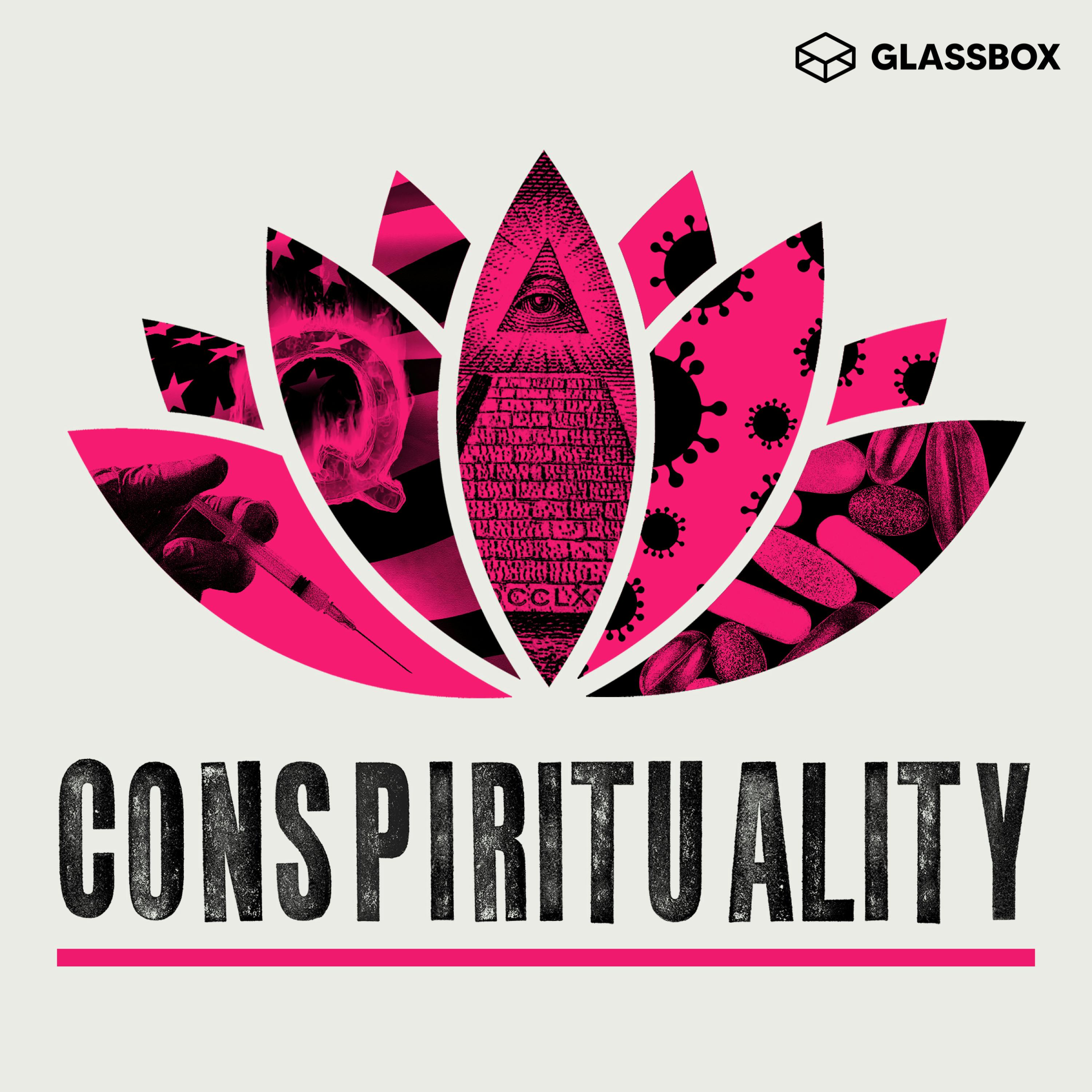
Conspirituality
Derek Beres, Matthew Remski, Julian Walker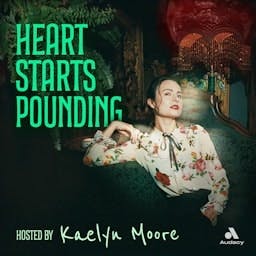
Heart Starts Pounding: Horrors, Hauntings and Mysteries
Heart Starts Pounding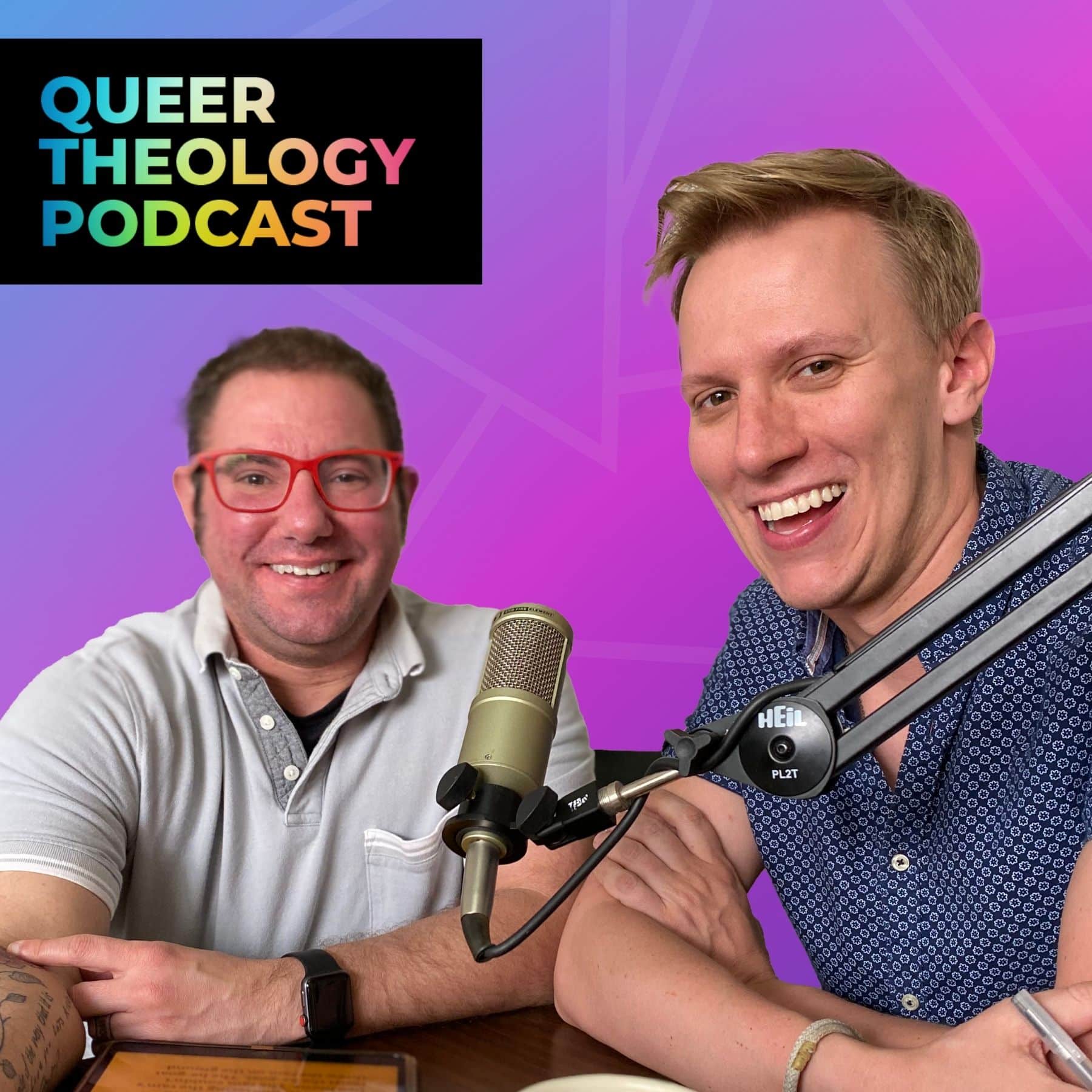
Queer Theology
Queer Theology / Brian G. Murphy & Shannon T.L. Kearns
Throughline
NPR
Code Switch
NPR
Ghost Church by Jamie Loftus
Cool Zone Media and iHeartPodcasts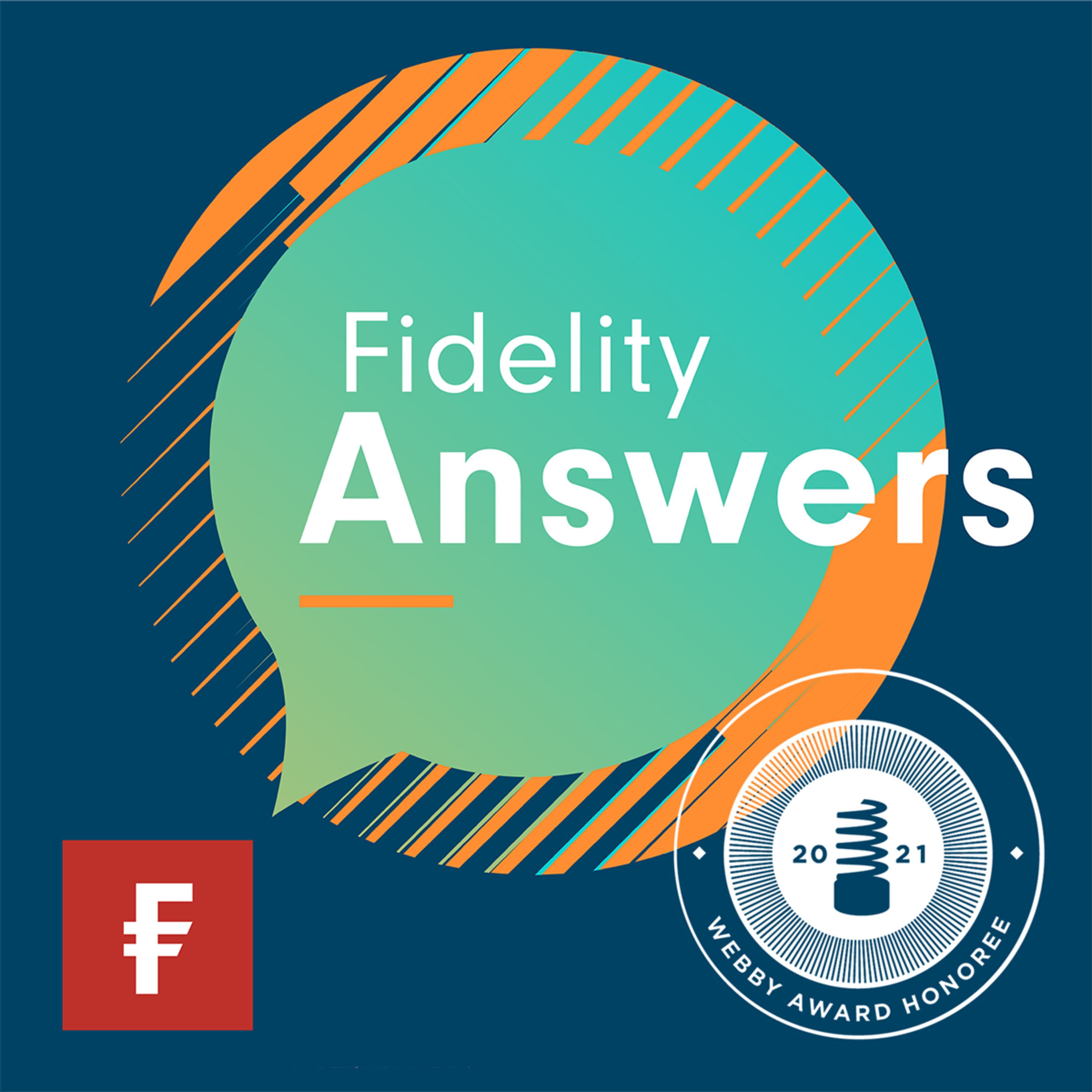
Trade Offs
Fidelity International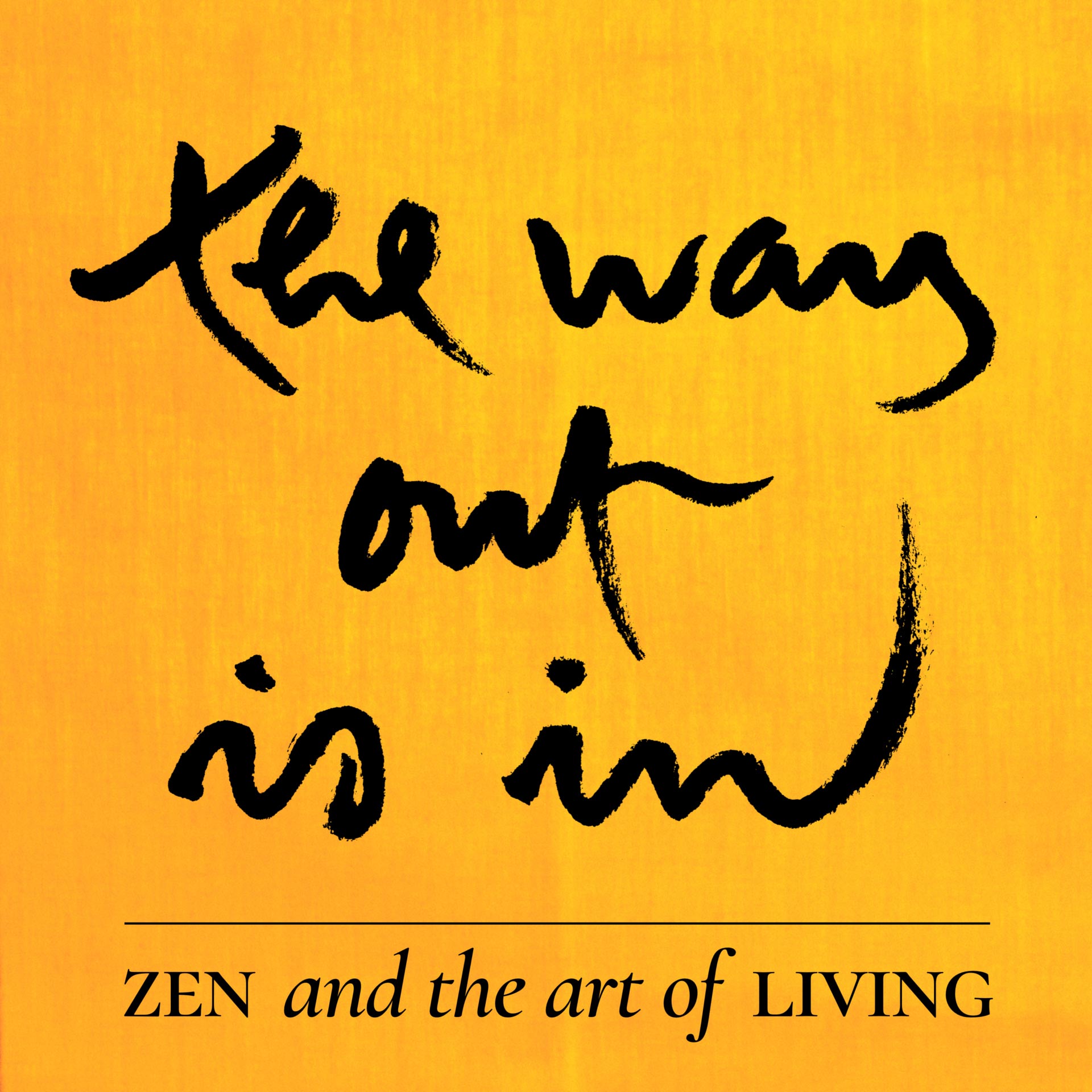
The Way Out Is In
Plum Village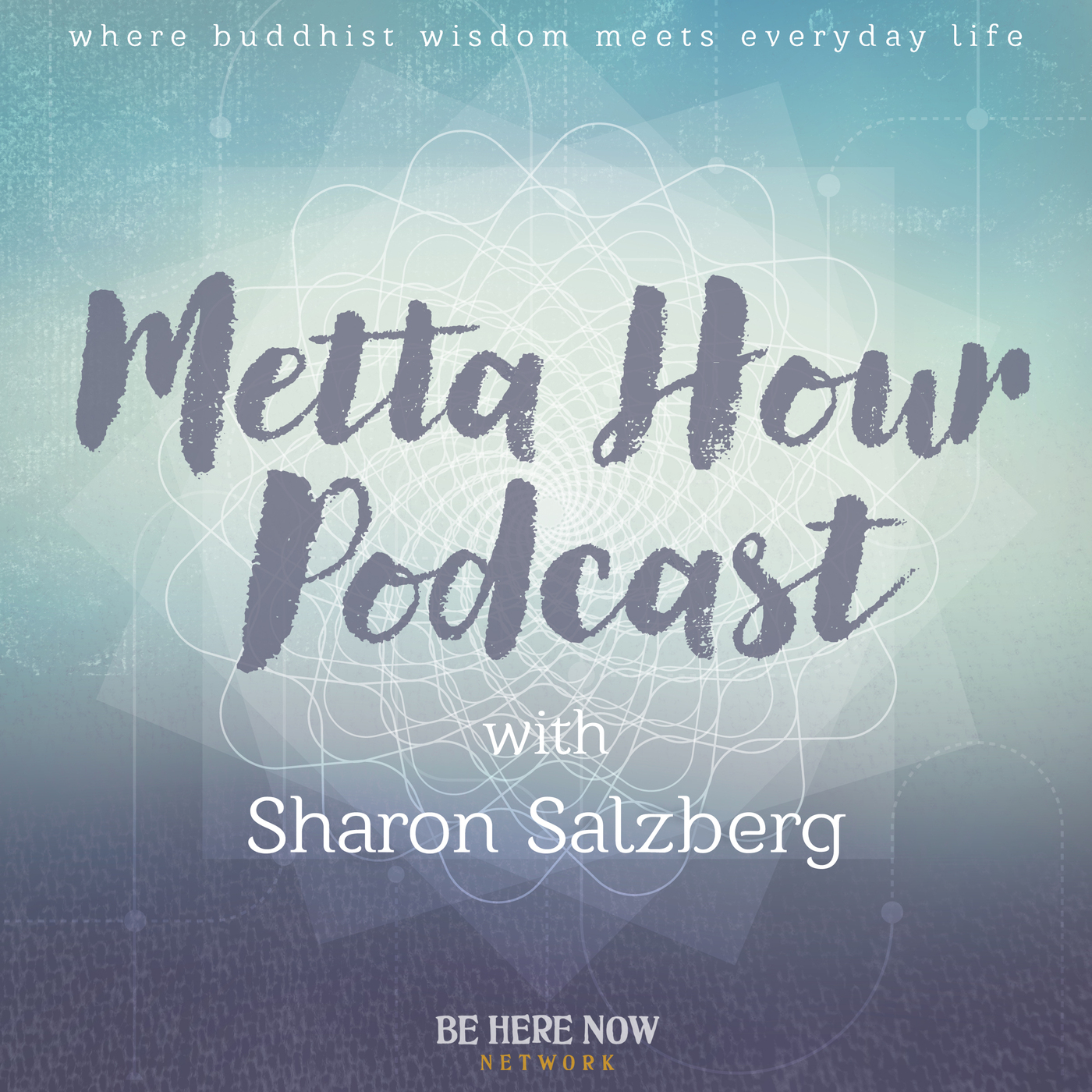
Metta Hour with Sharon Salzberg
Be Here Now Network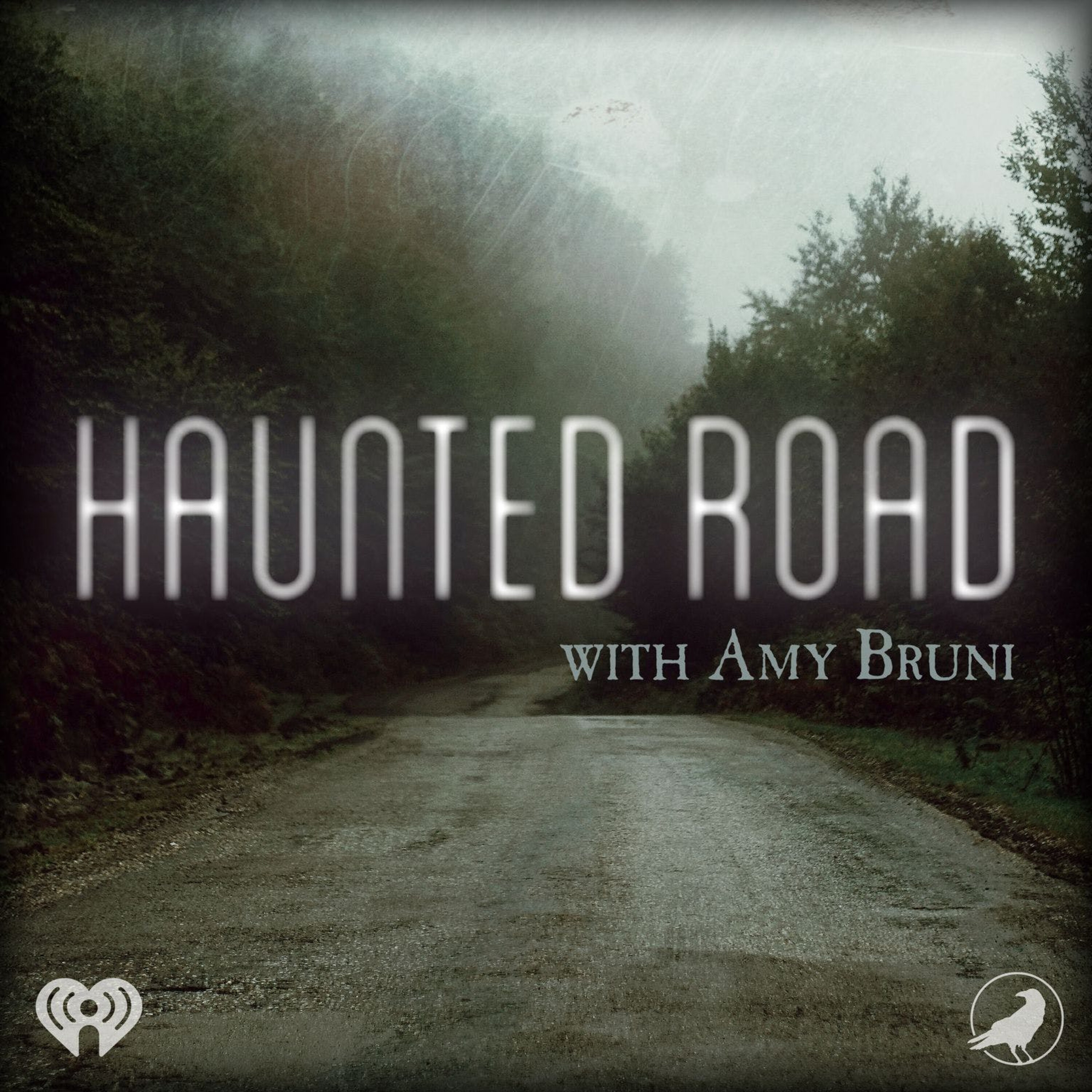
Haunted Road
iHeartPodcasts and Grim & Mild
